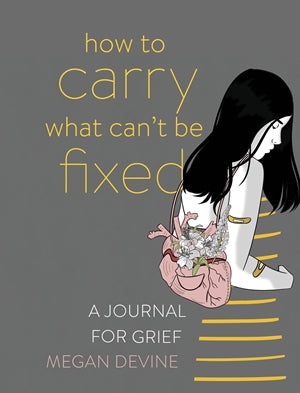
There is no doubt that the holiday season adds an extra measure of pain to people already bearing more than they can, more than they should ever have to. Death, illness, massive life events — they all sour the season in ways those outside your loss can’t understand.
Whether you’ve always loved the holidays or avoided them as best you could, the first several seasons after a death or massive life event are always difficult. So many people want to make this a “good” holiday for you, but first and foremost, you need to understand what is best for yourself during this rough time. Understand how to find a comforting place through all the chaos:
Say no a lot. Really. Other people will tell you you should say yes to things, get out more, be social. But if “being social” gives you the hives, why on earth would you do that? Remember that “no” is a complete sentence. You can say “no, thank you” if you must say more.
Choose your gatherings. If you do choose to attend something holiday-ish, choose wisely. Sometimes a big crowd is easier than a small one because you can slip out un-noticed as you need to. While a small gathering might have been most comfortable in your life instead.
Find ways to be alone-together with others. Musical offerings, candlelight meditations or services — check those little local newspapers and see what’s going on in your community.
Volunteer. If you are feeling stressed by family obligations, choose this as a good opportunity to get some space and serve others who may need some lifting up too.
Have a plan. Before you go to a party or an event, be sure to make your exit plan clear — with yourself. Give yourself an out, whether that is a specific time limit or an emotional cue that lets you know it’s time to go.
Check in with yourself. This is true not just for events and gatherings but for every single moment of life. Take just a minute to take a breath, one good inhale and exhale, and ask yourself how you’re doing. Ask yourself what you need in that moment.
Leave whenever you want. Stop whatever you’re doing whenever you want. Please remember that this is your life. You do not have to do anything that feels bad or wrong or horrifying. Even if you agreed to participate in something, you can change your mind at any time.
The holidays are going to hurt, my friend. That is just reality. Whether you are missing someone who should be part of the festivities or someone who shared your love of quiet winter evenings over raucous partying, this season will add some to your grief.
Companion yourself. Care for yourself. Listen. Reach out where it feels good to reach, curl in when that is what you need. Make this season as much of a comfort to you as you can. And when it is not a comfort, know we’re here. All of us who are grieving over someone we lost: We get you. We understand.
Looking for more great reads?
Excerpted from It’s OK That You’re Not OK: Meeting Grief and Loss in a Culture That Doesn’t Understand by Megan Devine.
 Megan Devine holds a master’s degree in counseling psychology. Through her many articles and speaking engagements, she has emerged as a bold new voice in the world of grief therapy. She recently released her first book, It’s OK That You’re Not OK: Meeting Grief and Loss in a Culture That Doesn’t Understand. She lives in Portland, Oregon.
Megan Devine holds a master’s degree in counseling psychology. Through her many articles and speaking engagements, she has emerged as a bold new voice in the world of grief therapy. She recently released her first book, It’s OK That You’re Not OK: Meeting Grief and Loss in a Culture That Doesn’t Understand. She lives in Portland, Oregon.















It’s been 7 yrs since my husband died and I’m finding this year to be tougher than ever. Getting weary of living life this way.
My husband, Rick, didn’t wake up last Christmas (2017). He hadn’t been I’ll, he just didn’t wake up. In 16 years we spent a total of 10 days apart and now its almost a year. I still expect him to come in the front door saying, “Honey, I’m home.” I miss him so much. The holidays are here again and its not like I can ignore it…its all around me. I wish I could sleep and not wake up until after New Years.